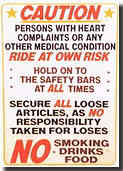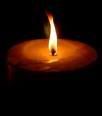Tuesday, December 22, 2009
Mary Gordon, Catholic Girl
I entered in, I know not where,Mary Gordon: Reading Jesus - A Writer’s Encounter With the Gospels (2009, Pantheon. 205 pp.)
And I remained, though knowing naught,
Transcending knowledge with my thought.
St. John of the Cross
Mary Gordon is a rare enough bird: a well-known writer, critic, intellectual, lecturer, college professor, Manhattanite, feminist, who also happens to be a lifelong observant Roman Catholic. (I admit I haven't been a good enough English-speaking reader. ) A few years ago, she heard a protestant preacher ranting on a taxicab radio & decided to read & study all four Gospels, in canonical order, in various translations, & see what kind of reaction she had. The result is a book resisting categorization - memoir, spiritual meditation, literary criticism. It most feels like a collection of exploratory homilies for herself.
Catholics of Gordon's generation were not much encouraged to read the Bible. Even Methodist Sunday School kids like myself read it haphazardly. Like Gordon, I also was filled with composite New Testament stories loaded with details not found in the Bible, & our teachers avoided particularly strange, contradictory, troublesome passages & encounters whenever they could. It's interesting to see her try to sort out those stories , confront miracles, & deal with the paradoxes. She attempts to maintain some intellectual distance, but memories & associations cut through.
The book is in three parts, each chapter in a part beginning with the same passage as recounted in different Gospels & versions.
One strength of Catholicism I've always admired is its acceptance of mystery, of the unexplainable. Oh, there's a long & venerable history of brilliant theologians trying to explain, but there's a parallel history of mysticism & a tradition of practical observance - you don't have to understand. Catholics have more wiggle room than they are generally given credit for by conservative protestants, for whom everything must be just so.
Part III - The Seven Last Words And The Last Words, is the least satisfying. Gordon wiggles, shrugs, & fully exposes the Cafeteria Catholic we already know she is. Too much unexplainable mystery. She cannot accept that Jesus could be the only incarnation of God. But Jesus is the one she grew up worshipping, & still does - if skeptically.
Part II - The Problem Of Jesus: Reading Through Anger, Confusion, Disappointment, Loss, deals with various problems, paradoxes, & contradictions that create differences of attitude, doctrine, & ethics among Christians, although I'm vastly simplifying it. "The Problem Of Asceticism: Do We Want To Live Like This?" "The Problem Of Perfection: Could We Live The Way He Says Even If We Wanted To?" An excellent, brief chapter on "The problem of the Jews." Some passages Christians have good reason to wish could be wished away, written for their time & intended audience they have contributed no good ever since. They are artifacts.
Part I - These Fragments I Have Shored Against My Ruin, is the best. Here we find Mary & Martha - for whom Gordon shows a special affinity. Also the demonic man living among the tombs, Jesus converses with his demon[s], casts them into a herd of pigs, which run off a cliff. Mainstream protestants are uncomfortable with the idea of demonic possession; these days I suppose nearly everyone is. There is the brief appearance of a man in the Garden of Gethsemane, cloaked only in linen, who goes running naked into the night. Who is he? Why is he there? Everyone looks away from the naked man. A petulant Jesus withers a fig tree for not bearing fruit out of season, a harsh judgment on a living thing with no free will doing what it's supposed to do.
Unlike Garry Wills in his books, at no point in Reading Jesus does Gordon sound like she'd be more comfortable as a protestant. I think she'd be a Catholic or nothing in particular. Wills wants to take back the Church, but you know he can't. However Gordon managed to accommodate herself to institutional Roman Catholicism, she did long ago & it's unlikely she loses sleep mulling over the history of the popes. Her Catholicism, like that of most active Catholics you & I know, is observed mainly in the heart, home, & parish, & is a practice, not a "denomination." What she does want is her own Jesus, with all the uncertainties, questions, puzzles, impossible demands, & miraculous occurrences. The Jesus who is both fully God & fully human. She doesn't want the sure thing, step-right-up Evangelical protestant Gospels blaring from the taxicab radio; the Gospel where all pieces fit because they're whacked into place with a mallet; the preacher pretending to have no doubts about the meaning of the Gospels, or, even worse, the preacher with no doubts.
Washington Post review.
New York Times review.
Labels: religion, Rix reviews, what I'm reading
Comments:
<< Home
"If a nation expects to be ignorant and free, in a state of civilization, it expects what never was and never will be." Thomas Jefferson
Great post! I have heard a lot about that book and one day I will read it. Too many books, not enough time!
Post a Comment
<< Home















